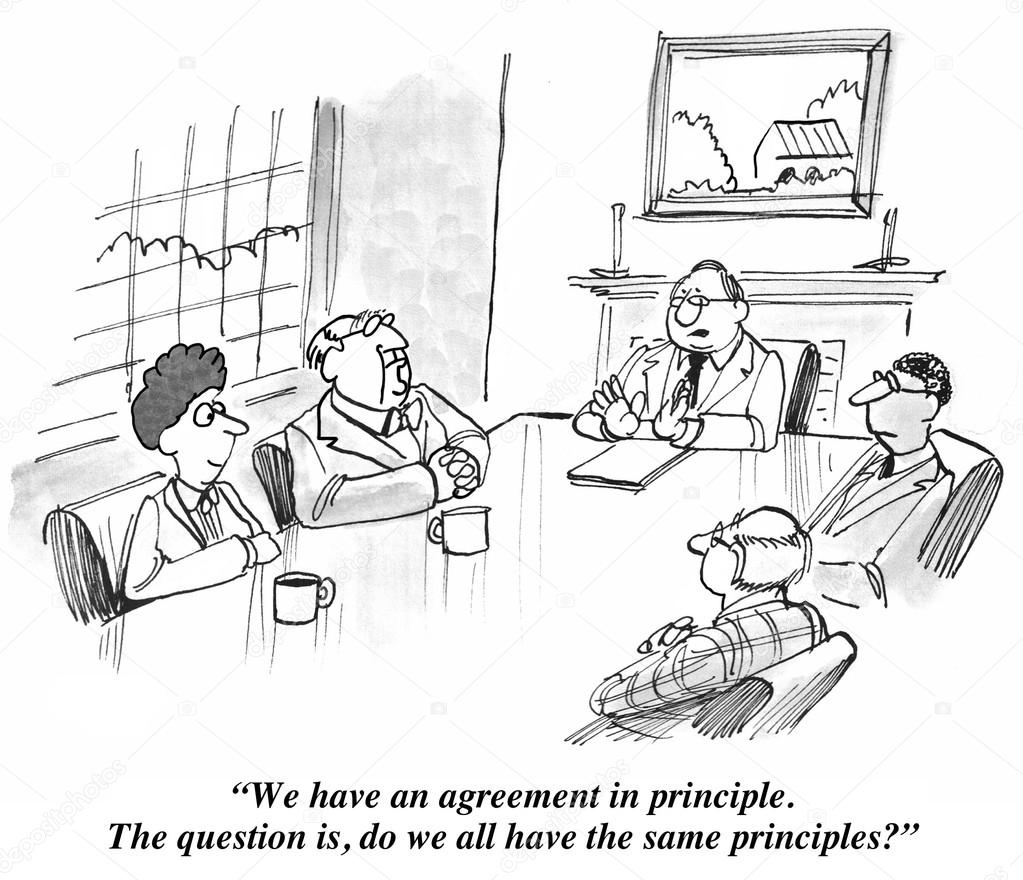Ethics in Legal Profession: A Comprehensive Read!
October 17, 2025
Overview: Delve into the intricate world of Ethics in the legal realm, where integrity and justice intersect. Discover the vital principles shaping lawyers' conduct and how they navigate ethical dilemmas. Explore the moral compass guiding the legal profession – an essential read for those seeking a deeper understanding.
When we think about lawyers, judges, and other legal professionals, a particular image often comes to mind: individuals wearing robes, arguing cases, or making pivotal decisions that can change lives.
But behind this image lies a foundation that holds the legal system together—ethics. Ethics, in simple terms, are the moral principles and standards that guide our behavior. Within the realm of the legal profession, these principles become even more significant.
Every action, word, and decision made by a legal professional can have profound implications. As such, it's crucial for these professionals to adhere to a strict code of ethics, ensuring that they act with utmost honesty, integrity, and dedication. This article delves deep into this vital aspect of the legal world.

Key Contents
- A Deep Dive into Ethics: Understanding the core principles and values that guide legal professionals.
- The Significance of Ethics: Exploring why maintaining ethical standards is essential for the legal system and society at large.
- Principles & Challenges: An overview of the key ethical principles guiding the profession, juxtaposed with the modern challenges these principles face.
- Guidelines for Upholding Ethics: A look into the proactive steps and measures that can be taken to ensure ethics remains at the forefront of the legal profession.
Learn: Impact of AI on Legal Industry
What is Ethics in the Legal Profession?
-
Definition of Ethics: At its core, ethics refers to the principles and values that dictate how individuals should behave. These principles guide decision-making and actions based on what is right and just.
-
Application in the Legal Realm: In the realm of the legal profession, ethics becomes even more pivotal. Ethics in the legal profession is not just a catchphrase. It's an essential set of standards that every legal professional must embrace.
-
Guiding Principles: Ethics in the legal profession primarily focuses on ensuring that lawyers and legal practitioners act with utmost integrity, honesty, and diligence. Their actions should reflect a deep commitment to these values.
-
Role of Regulatory Bodies: There are established institutions and regulatory bodies that lay down these ethical guidelines. Their role is to ensure that the ethics in the legal profession is not merely theoretical but is practiced daily.
Why is Ethics Important in the Legal Profession?
Maintaining Public Trust:
- Lawyers, more than many other professionals, are entrusted with significant powers. They represent individuals, often during some of their most vulnerable moments.
- Ensuring ethical conduct is fundamental to building and maintaining public trust. When people think of "ethics in the legal profession," they're considering if they can trust their lawyer with their life's most pressing issues.
- When ethical standards are upheld, the public's faith in the legal system strengthens.
Upholding the Rule of Law:
- The entire foundation of our society relies on the rule of law. And for this system to function smoothly, ethics in the legal profession cannot be an afterthought.
- Professionals within the legal framework, be it judges, lawyers, or paralegals, need to adhere strictly to ethical guidelines. This ensures that justice is not only done but is seen to be done.
- Without a strong emphasis on ethics in the legal profession, the rule of law could be undermined, leading to chaos and mistrust.
Read: Importance of Mentorship for Law Students
Protecting Client Rights:
- Every client deserves representation that respects their rights and interests. This is a fundamental tenet of the legal system.
- Lawyers, guided by the beacon of "ethics in the legal profession," have a paramount duty to their clients. This duty isn't just about winning cases; it's about ensuring that the client's rights are protected at all times.
- Ethical representation ensures that outcomes are not just favorable but are also achieved through fair and just means. When ethics in the legal profession is prioritized, clients can feel confident in the justice system.
Key Ethical Principles in the Legal Profession
1. Confidentiality:
- Definition: Confidentiality revolves around the safeguarding of client information.
- Importance in Ethics in Legal Profession: At the heart of the ethics in the legal profession is the principle that lawyers must prioritize the privacy and security of their client's information.
- Guideline: Lawyers should not disclose or misuse client information without explicit permission.
- Outcome of Breach: If this tenet of ethics in the legal profession is violated, it can erode trust and harm the attorney-client relationship.
2. Conflict of Interest:
- Definition: This concerns situations where a legal professional's personal interests might clash with their duties.
- Importance in Ethics in Legal Profession: Upholding ethics in the legal profession requires professionals to maintain unbiased judgment and impartiality.
- Guideline: Professionals should not represent conflicting parties without clear disclosure and informed consent.
- Outcome of Breach: Disregarding this aspect of ethics in the legal profession can result in unfair representation and undermine justice.
Don't Miss - How to Draft Legal Documents?
3. Duty of Competence:
- Definition: This emphasizes the necessity for legal professionals to be well-informed and skilled in their practice areas.
- Importance in Ethics in Legal Profession: Central to the ethics in the legal profession is ensuring clients receive qualified and up-to-date representation.
- Guideline: Legal professionals should stay updated with legal developments and operate within their expertise boundaries.
- Outcome of Breach: Failing in this ethical duty can jeopardize cases and client interests, damaging the reputation of the ethics in the legal profession.
4. Honesty:
- Definition: Honesty requires truthfulness in all professional interactions.
- Importance in Ethics in Legal Profession: Truthfulness forms the bedrock of trust in the ethics in the legal profession.
- Guideline: Whether dealing with clients, courts, or peers, lawyers must present facts and information transparently.
- Outcome of Breach: A breach in honesty can lead to legal sanctions and a tarnished reputation in the legal community.
5. Duty to the Court:
- Definition: This refers to a lawyer's obligation to uphold the sanctity and integrity of the legal process.
- Importance in Ethics in Legal Profession: Maintaining a healthy justice system is a key aspect of ethics in the legal profession.
- Guideline: Lawyers should always act with integrity, respect court procedures, and ensure that justice is unobstructed.
- Outcome of Breach: Neglecting this duty can compromise the justice system and diminish public trust in the ethics in the legal profession.
Also Read - How to Practice Legal Drafting Like a Pro?
Challenges to Ethics in the Legal Profession
1. Commercial Pressures:
- Overview: The need for profitability can conflict with ethical standards.
- Impact on Ethics in Legal Profession: The balance between earnings and maintaining the ethics in the legal profession can be delicate.
- Issue: Some legal professionals might prioritize profit over ethics, potentially harming client interests.
- Solution: Legal firms should implement checks and balances to ensure profitability doesn't overshadow ethics in the legal profession.
2. Technological Advances:
- Overview: The digital age presents new ethical dilemmas.
- Impact on Ethics in Legal Profession: Adapting to technological changes is now a part of the ethics in the legal profession.
- Issue: Topics like online data protection and cyber confidentiality are growing concerns.
- Solution: Continual training and adaptation can help uphold the ethics in the legal profession amidst tech advancements.
Learn: Draft a Contract of Sale
3. Globalization:
- Overview: Global operations come with diverse ethical considerations.
- Impact on Ethics in Legal Profession: Navigating varying global standards can test the ethics in the legal profession.
- Issue: Different countries have different legal ethics, creating potential conflicts.
- Solution: Cross-cultural training and flexible ethical guidelines can assist legal professionals in maintaining the ethics in the legal profession internationally.
4. Ambiguity in Laws:
- Overview: Laws aren't always black and white.
- Impact on Ethics in Legal Profession: Deciphering vague laws is a recurring challenge in the ethics in the legal profession.
- Issue: The blurred lines between what's ethical and what's legal can cause confusion.
- Solution: Clear interpretation, regular training, and open discussions can aid in upholding the ethics in the legal profession amidst ambiguous laws.
Promoting Ethics in the Legal Profession
Ethics in the legal profession is more than just a catchphrase; it's the bedrock upon which trust in the legal system is built. To ensure that ethical standards are maintained and continuously improved, several measures can be adopted:
1. Education:
-
Emphasis on Ethics: By placing Ethics in the Legal Profession at the forefront of legal education, aspiring lawyers can start their careers with a clear understanding of their ethical obligations.
-
Regular Workshops: Periodic workshops and training on Ethics in the Legal Profession can help established lawyers refresh and reinforce their understanding.
-
Case Study Analysis: By reviewing real-life scenarios where Ethics in the Legal Profession were in question, legal professionals can better understand and navigate similar situations in the future.
Read More - How to Learn Contract Drafting?
2. Strict Regulations:
-
Clear Guidelines: Clearly defined and regularly updated codes of conduct focusing on Ethics in the Legal Profession provide legal practitioners with a roadmap to follow.
-
Penalties for Breaches: Ensuring that breaches in Ethics in the Legal Profession carry consequences will discourage unethical behaviors.
-
Review Mechanisms: Establishing processes for periodic reviews of practices can ensure adherence to the evolving standards of "Ethics in the Legal Profession."
3. Peer Monitoring:
-
Peer Review Panels: Creating panels where legal professionals review their peers' adherence to Ethics in the Legal Profession can be both a deterrent and an educational tool.
-
Open Dialogue: Encouraging an environment where discussions about Ethics in the Legal Profession are normalized can foster mutual accountability.
-
Mentorship: Experienced lawyers can guide younger professionals, emphasizing the importance of Ethics in the Legal Profession throughout their careers.
4. Public Awareness:
-
Publicity Campaigns: Running campaigns that highlight the significance of Ethics in the Legal Profession can make clients more informed and vigilant.
-
Accessible Information: Distributing easy-to-understand pamphlets or brochures about the importance of ethics can empower the public to demand ethical behavior from their legal representatives.
-
Feedback Mechanisms: Establishing channels where the public can report perceived breaches in Ethics in the Legal Profession can further keep professionals in check.
Don't Miss - How to Draft Legal Notice for Defamation?
Key Takeaways
-
Understanding Ethics: Ethics in the legal profession refers to the principles guiding the behavior of legal experts, ensuring they act with honesty, integrity, and diligence.
-
Significance: Ethical behavior is crucial for:
- Maintaining public trust in the law.
- Ensuring the effective functioning of the legal system.
- Properly and fairly representing clients' interests.
-
Main Ethical Principles: These include maintaining client confidentiality, avoiding conflicts of interest, staying competent in one's field, always being honest, and showing unwavering duty to the court.
-
Facing Challenges: Ethics in law faces hurdles like commercial pressures, technological advancements, globalization, and ambiguous laws.
-
Promotion of Ethics: For a more ethical legal profession, continuous education, stringent regulations, peer monitoring, and raising public awareness are essential.
Remember, a lawyer's ethics isn't just about rules but about upholding justice, fairness, and the greater good.
Frequently Asked Questions
Why are ethics essential in law?

What is meant by 'confidentiality' in law?

How does a conflict of interest arise in law?

What is the duty of competence?

How can commercial pressures challenge ethics in legal profession?

How does technology impact legal ethics?

Are there courses on ethics for legal professionals?

Who regulates the ethical conduct of lawyers?

How can the public ensure a lawyer is ethical?

Can a lawyer represent both sides in a dispute?



SHARE